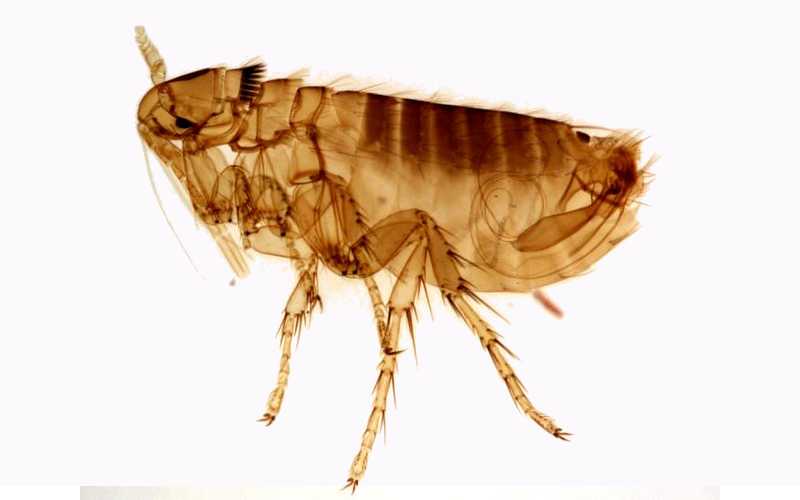You won’t believe how many dog parents frequently ask, “Why is my dog licking paws?” It is one of the most common queries by dog parents in the summer & autumn seasons.
Occasional Licking of Paws seems to be expected as they groom themselves in their leisure time. However, Suppose repetitive and aggressive licking or biting like the dogs have got itchy paws. In that case, the paw licking behaviour could be a symptom of paw injury, allergies, insect bites, anxiety, or maybe boredom too can be the cause.
The good news is an early observation about the unusual behaviour can get early treatment, whereas some can also be treated with home remedies. First of all, you have to be aware of the possible reasons and rule them out with the help of your vet.
When Should the Dog Parents be Worried?
After observing compulsive licking or biting your pet dog, you should be taking action before it gets too late and your dog develops Lick Dermatitis. Dog parents should start to assess their dog’s paws and toes for any of the following indicatives such as:
- Discoloration
- Rash
- Burns
- Ticks or Fleas
- Swelling or Bleeding
- Odors
- Limping or uncomfortable movement
- Splinters or glass
Top 8 Possible Reasons for Your Dog Licking Paws
We asked the expert dog vets about what possibly are the most common reasons behind Dog licking paws behaviors and how parents should be taking action and initiate first aid steps.
Allergies
Your dog’s defense mechanism is activated against any allergies. Dog licking paws could be a symptom or a reaction to soothe or dull the pain because of allergies. Dogs can have food-related allergies, environmental allergy or even flea allergies.
Food Allergy
Many pets develop food allergies depending upon their age, physical activity, breed, and gender. You need to ask your dog’s vet about what possible food ingredients could be the potential allergens that initiate an allergic response by the immune system leading to constant paw licking behavior.
Dog food contains different ingredients, a few of which are most common to cause allergies: beef, dairy, wheat, chicken, and even wheat. Your vet will ask to put your dog on a specific diet for a week or two to see if you notice any changes in its behavior.
Environmental Allergy
Dogs are susceptible to the outdoors and can exhibit allergic responses against dust, grass, dust mites, mold spores, and pollen, which is also one reason dogs have allergies in the summer & autumn season. As a result, dogs show sneezing, running nose, aggressive paw licking, running eyes, rashes, and itchy skin.
Flea or Tick Allergy
Flea allergic dermatitis is a specific type of dermatitis due to flea attached as a parasite to the dog’s skin. The flea’s saliva acts as an allergen activating allergic response with symptoms like paw-licking, itchy skin, redness, hair or fur loss, and Hotspots.

Dermatitis
Dermatitis is the body’s immune response whenever dogs’ skin comes in contact with allergens, bacteria, parasites, or chemicals used in your outdoor garden. The symptoms of dermatitis are itchy skin and sometimes rashes. If the dog’s paw pads and feet appear normal and healthy, it could be dermatitis.
Experts suggest making it a habit as a dog parent always to clean your dog’s feet and paw pads with a wet towel every time they come home from running errands.
Injuries
Injuries can be suspected if the dog licking paw behavior suddenly comes and targets one paw or specific area. Check closely and carefully your dog’s paw pads, between the toes, top of the feet, and nails.
Dogs are more likely to be irritated with cuts, overgrown toenails, torn toenails, stone or thorn stuck in paw pads, blisters, or bee-stung, and even walk on too hot sidewalks.
Parasites
Parasites, including mites, fleas, and mange, can make the dog very itchy. You need to visit your vet to assess the Dog and prescribe medical treatment to eliminate the parasites.
Soreness & Pain
Dogs can also develop arthritis (inflammation of joints causing pain & soreness) and are most likely to lick their front paws. If your doctor has ruled out itchy skin, your vet can examine and treat with medicine if diagnosed with arthritis.

Secondary Infections
Prolonged licking causes the skin to become moist for hours, making it susceptible to secondary infections, including bacterial, viral, yeast, or fungal infections. Therefore, you are recommended to work under your vet’s instruction for early diagnosis and treatment.
Behavioral Issues (Boredom or Anxiety)
Boredom, stress, and anxiety could also develop compulsive behavioral issues such as dog paw licking behavior. You should engage your dog in interactive activities and toys like puzzles, safe chewable toys, calming treats, more walks, runs, and playtime to channel their physical energy and time into positivity.
What is Lick Dermatitis | Why do dogs licking paws develop lick granuloma?
Experts are concerned about compulsive prolonged dog paw licking behavior leading to developing skin conditions called Lick Dermatitis, also known as Lick Granuloma. Typically start with lower leg licking leading to skin irritation, and despite treatment, the stubborn disease Lick Dermatitis is more likely to persist.
How To Stop Your Dog From Licking Paws
The most effective way to stop dog licking paws behavior is to distract them by engaging in physical activities and scolding them for licking or rewarding them. You can offer them more toys, talk them to walks, play with them and distract them by keeping them busy and engaged in interactive activities. You can also take them to the next dog playdate. You can search for the upcoming Dog Or Puppies Playdate near you.
Is it specific to certain breeds?
There is a tendency in some dog breeds to lick themselves too much. Some lick occasionally or never licks themselves. Here we have enlisted a few and classified into which dog breed is more likely to lick all the time and which is expected to never or licks only once in a while.
Dog Breeds that never or occasionally Lick themselves
Sighthounds and Arctic Dog breeds are the least likely to lick themselves, including:
- Greyhounds
- Salukis
- Borzoi
- Siberian Husky
- Alaskan Malamute
- American Eskimo
Dog Breeds that Lick themselves
- Labrador
- Retrievers
- Golden Retrievers
- Poodles
- Pug
- Chihuahua
If you enjoyed this article you might also like to read about Why is my Dog Scratching? and Why does my dog keep sneezing?
